Watch the video we made with entrepreneur Victor Steinbrueck.

© Kees van Duinhoven
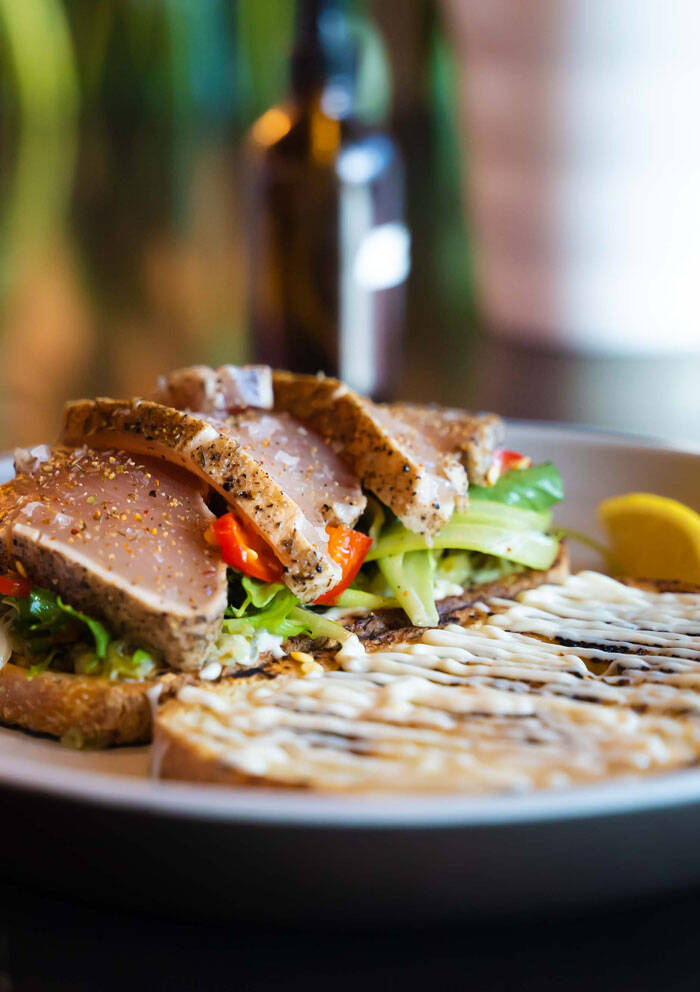
Courtesy of the Blue Food Program at the Google Food Lab in Los Angeles.
Fish restaurants usually present in two forms: fine dining restaurants or fast food restaurants. Local Tide in Seattle jumps into the gap between caviar and fish ‘n chips, as a casual dining seafood restaurant that was started by the young chef and owner Victor Steinbrueck (33) who combines local seafood with a contemporary vibe.
Originally, Steinbrueck planned to open a fine dining seafood restaurant, but Covid-19 adjusted his course. "Dining in was impossible, so we had to change our plans; that's why we have so many bowls and sandwiches on our menu; they are easy dishes to take away. My ego actually wanted an upscale restaurant, but I'm glad it turned out this way. Local Tide turned out to be a better concept than I imagined beforehand."
Steinbrueck's dream is not one of ultimate growth and global dominance. He believes there could only be a maximum of three Local Tide locations. "Fish is a finite resource. We want to offer our guests the best, but we also don't want to take too much of what nature has to offer us. We want to be in balance with the ocean."
Local tide
Seattle seafood restaurant is inspiring example for seafood menus
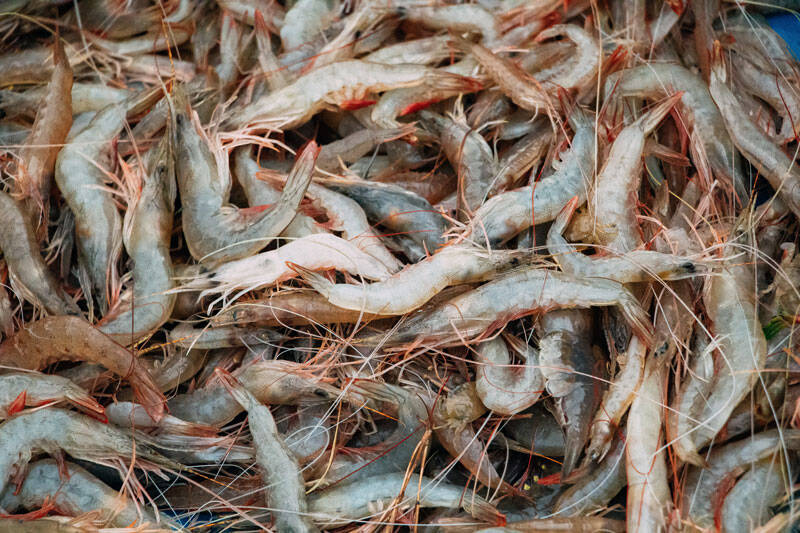
A lot is going in the wrong direction in the shrimp catch industry. But there are also companies that do business that are in balance with nature, growing shrimp without antibiotics, hormones, preservatives or pollution. TransparentSea Farm in Santa Monica, Los Angeles is one of those companies.
CEO Steve Sutton was shocked by the questionable practices he found within shrimp farming. He worked in the business for 10 years, and witnessed the ecological destruction and overuse of chemicals. Sutton envisioned a shrimp farm that was completely transparent in how shrimp are cultivated. Sustainability and quality are inextricably linked at his TransparentSea Farm, where he produces shrimp with minimal impact on nature and maximum impact on taste, quality and health.
TransparentSea Farm
Climate conscious shrimp
© Fishwife
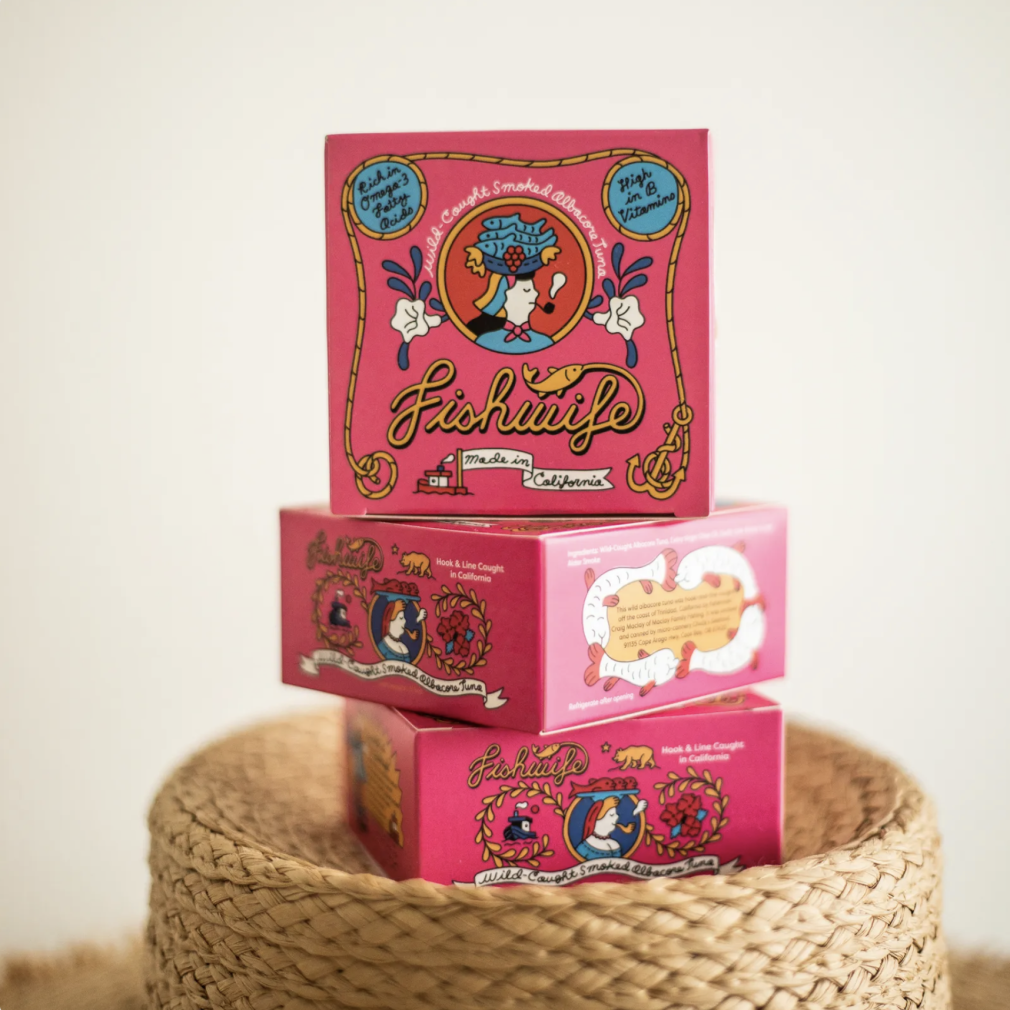
Sometimes the most unhealthy and ecologically destructive products also have the most effective marketing campaigns. All the while, sustainable producers generally have to tell their story through campaigns with small budgets. Perhaps in ten years, roles will have been reversed. Regardless of this dynamic, Fishwife is doing their best to sell sustainable fish in a pretty hip way.
Founders Becca Milstein and Caroline Goldfarb know that the term ‘fishwives’ dates back to the 16th century, and know that over the last few centuries, it has also acquired a negative connotation; typically it conjures an image of women who are brash and foul mouthed. But these co-founders can relate. Their unique branding, inspired by the Portuguese tradition of adding colorful packaging to canned fish, helps make their sustainable fish stand out.
Fishwife
Beautiful tinned seafood
To make sustainable fishing a success, products that stand out and are tasty tend to be more successful. Kvarøy Arctic came up with a delicious hot dog made from sustainable salmon. The Norwegian farm is a family business that is run by third generation fisherman, and the salmon farm is located in the icy arctic waters about 550 kilometers above Trondheim. Here, salmon is given space in the ocean and fed a diet that is free of antibiotics and chemical additives.
Through their consistent sustainable approach, the family-owned company has managed to double omega-3 fatty acids in their farmed salmon, compared to regular farming.
Kvarøy arctic
A hot dog made from sustainable salmon
Interested in the opportunities of our oceans? Read our article on Regenerative Ocean Agriculture

© Blue dot kitchen
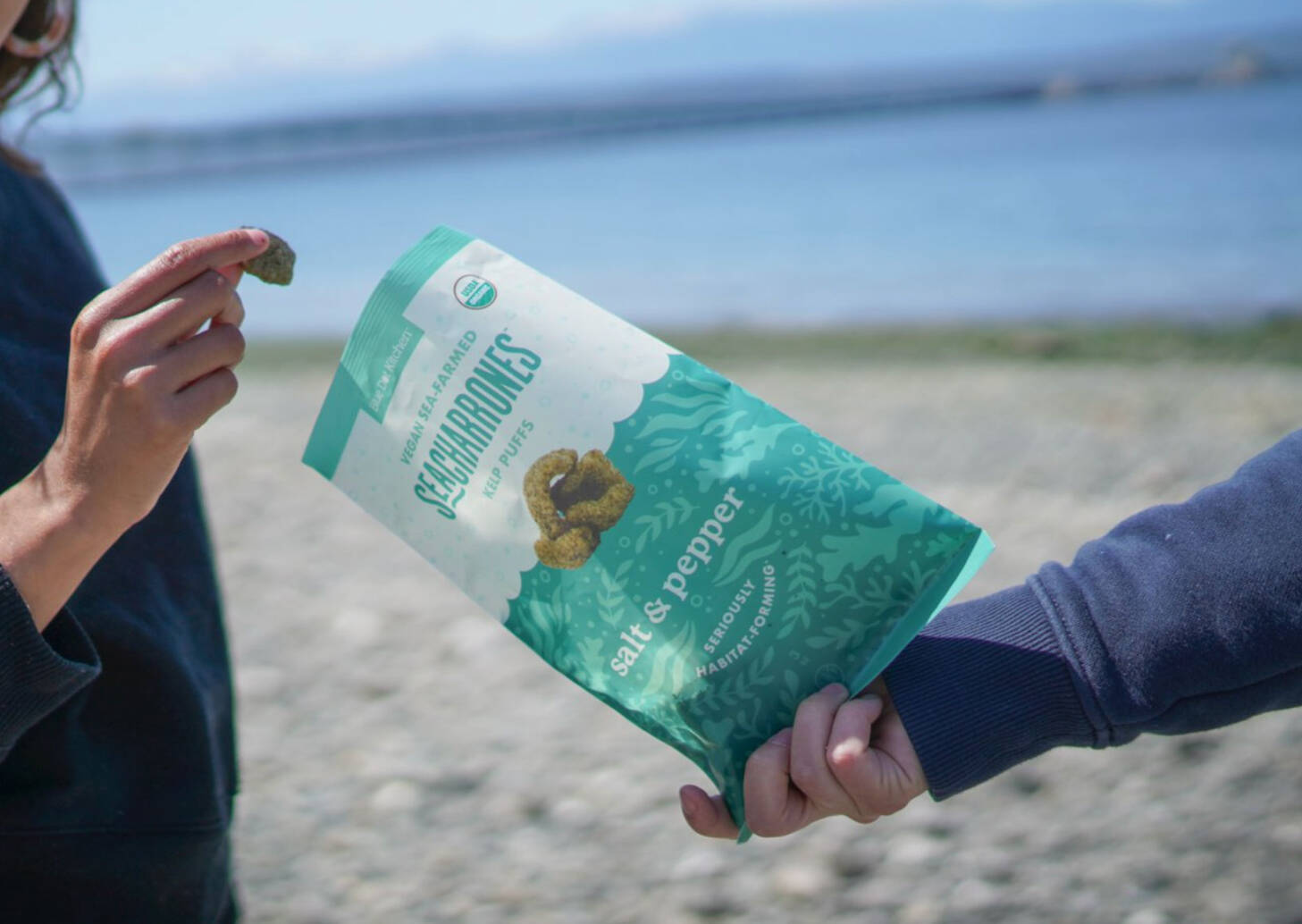
© KVARØY ARCTIC
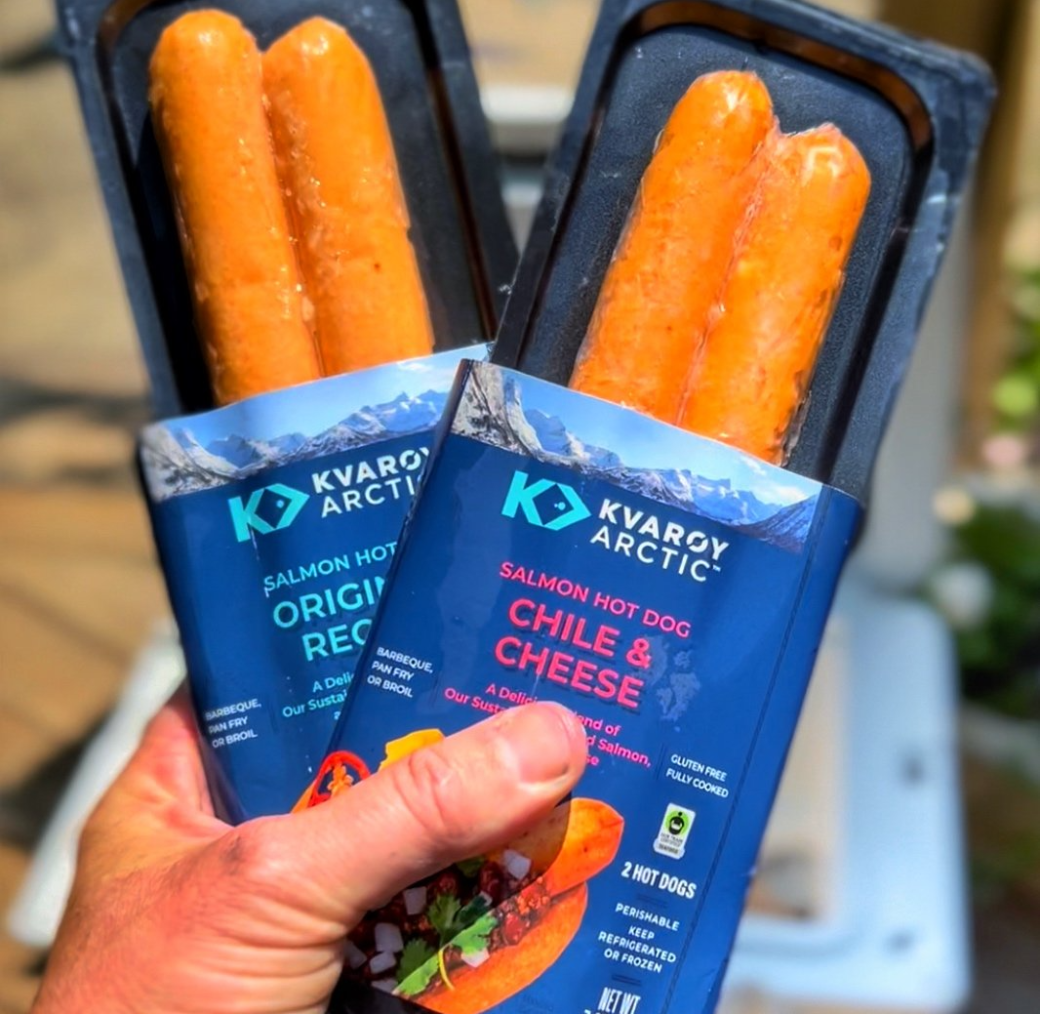
Who says snacking has to be unhealthy, or at the expense of animals or the planet? More and more start-ups are trying to make the healthy choice the tastiest choice. This includes Blue Dot Kitchen, a company that makes an irresistibly delicious snack from seaweed. Blue Dot’s offerings are available in three different flavors: Korean barbecue, umami and salt & pepper.
Located in the cold clear waters of the Salish Sea, Blue Dot sea farm grows kelp on a suspension aquaculture farm that enhances water quality and provides a cost-effective and ecologically sustainable food source. Kelp requires zero input to grow; it is regeneratively farmed with salt water and sunshine, without fertilizers or pesticides.
Blue Dot Kitchen
Restoring ocean health with every bite
These entrepreneurs understand that 'healthy' and 'sustainable' can't go without 'tasty'

Hans Steenbergen Xiao Er Kong
Global warming, overfishing and pollution are threatening our oceans. All while we should be cautious with the blue part of our planet. After all, it is one of the most important sources of food for our growing world population. Fortunately, more and more entrepreneurs are focusing on Blue Food. These are mostly young companies and driven entrepreneurs who understand that the health of our planet is just as important as economic profit, while also keeping in mind that a product can only be successful if the flavor is also tasty. Five notable examples include:
Five sustainable seafood initiatives





























cool concept
4 min
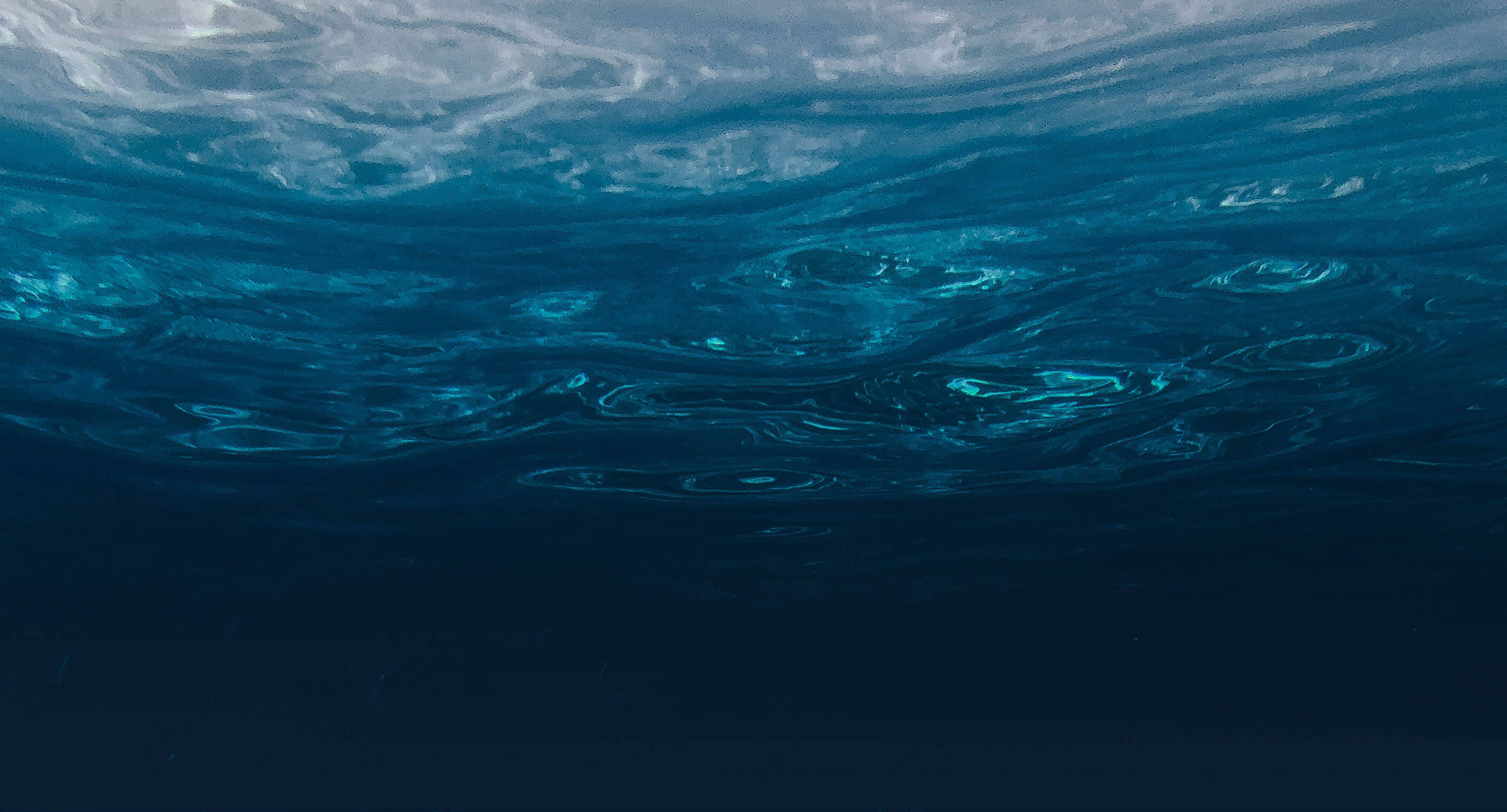
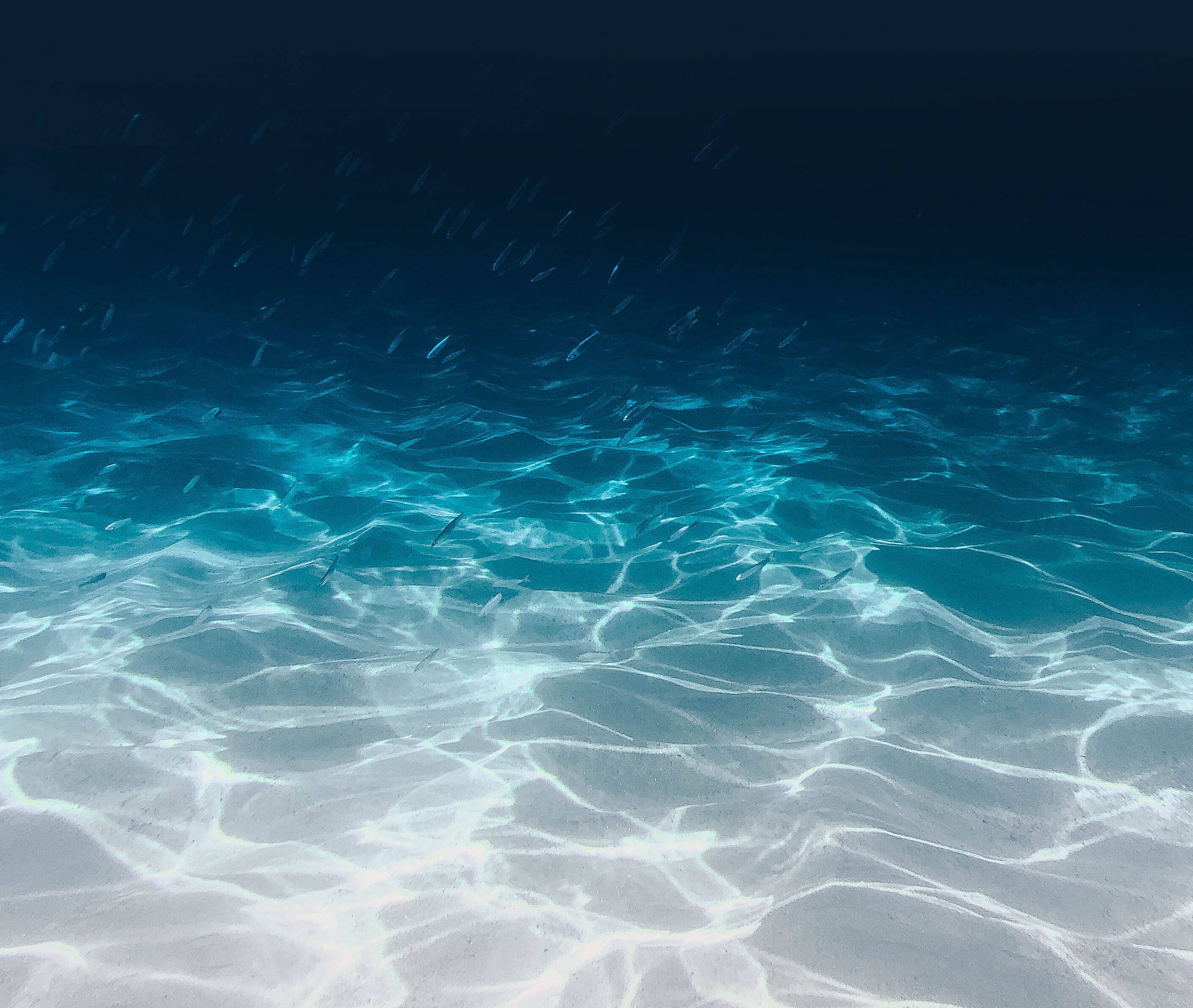
Courtesy of the Blue Food Program at the Google Food Lab in Los Angeles.
Interested in the opportunities of our oceans? Read our article on Regenerative Ocean Agriculture



























Watch the video we made with entrepreneur Victor Steinbrueck.

Fish restaurants usually present in two forms: fine dining restaurants or fast food restaurants. Local Tide in Seattle jumps into the gap between caviar and fish ‘n chips, as a casual dining seafood restaurant that was started by the young chef and owner Victor Steinbrueck (33) who combines local seafood with a contemporary vibe.
Originally, Steinbrueck planned to open a fine dining seafood restaurant, but Covid-19 adjusted his course. "Dining in was impossible, so we had to change our plans; that's why we have so many bowls and sandwiches on our menu; they are easy dishes to take away. My ego actually wanted an upscale restaurant, but I'm glad it turned out this way. Local Tide turned out to be a better concept than I imagined beforehand."
Steinbrueck's dream is not one of ultimate growth and global dominance. He believes there could only be a maximum of three Local Tide locations. "Fish is a finite resource. We want to offer our guests the best, but we also don't want to take too much of what nature has to offer us. We want to be in balance with the ocean."
Local tide
Seattle seafood restaurant is inspiring example for seafood menus
© Kees van Duinhoven
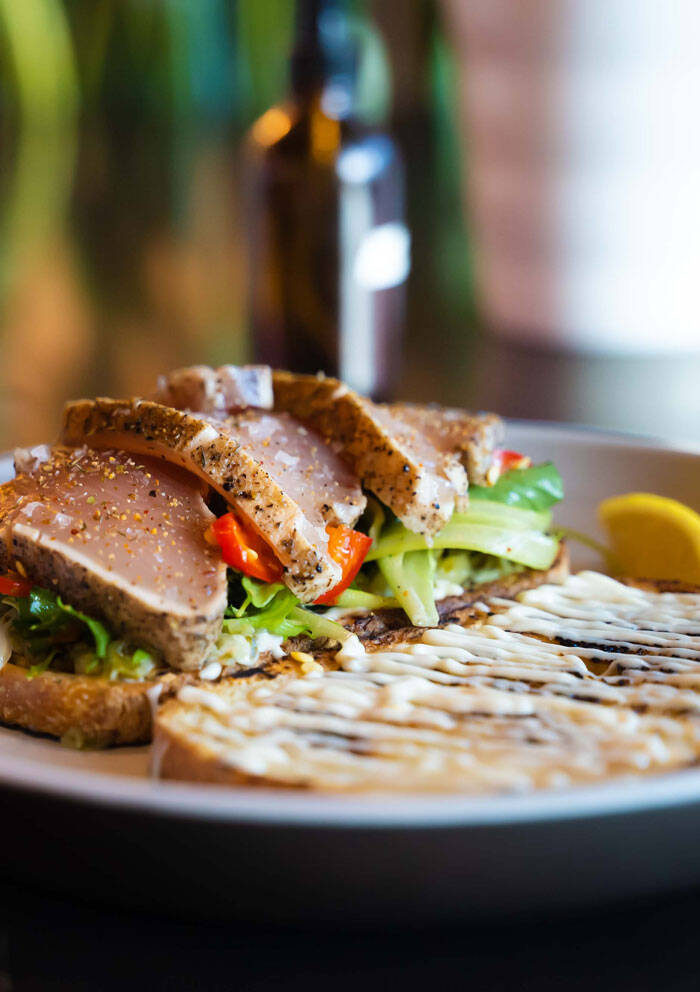
A lot is going in the wrong direction in the shrimp catch industry. But there are also companies that do business that are in balance with nature, growing shrimp without antibiotics, hormones, preservatives or pollution. TransparentSea Farm in Santa Monica, Los Angeles is one of those companies.
CEO Steve Sutton was shocked by the questionable practices he found within shrimp farming. He worked in the business for 10 years, and witnessed the ecological destruction and overuse of chemicals. Sutton envisioned a shrimp farm that was completely transparent in how shrimp are cultivated. Sustainability and quality are inextricably linked at his TransparentSea Farm, where he produces shrimp with minimal impact on nature and maximum impact on taste, quality and health.
TransparentSea Farm
Climate conscious shrimp
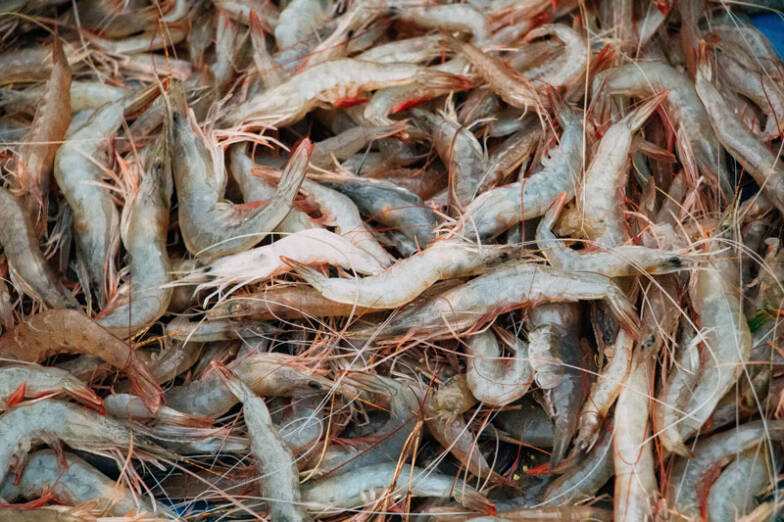
©Fishwife
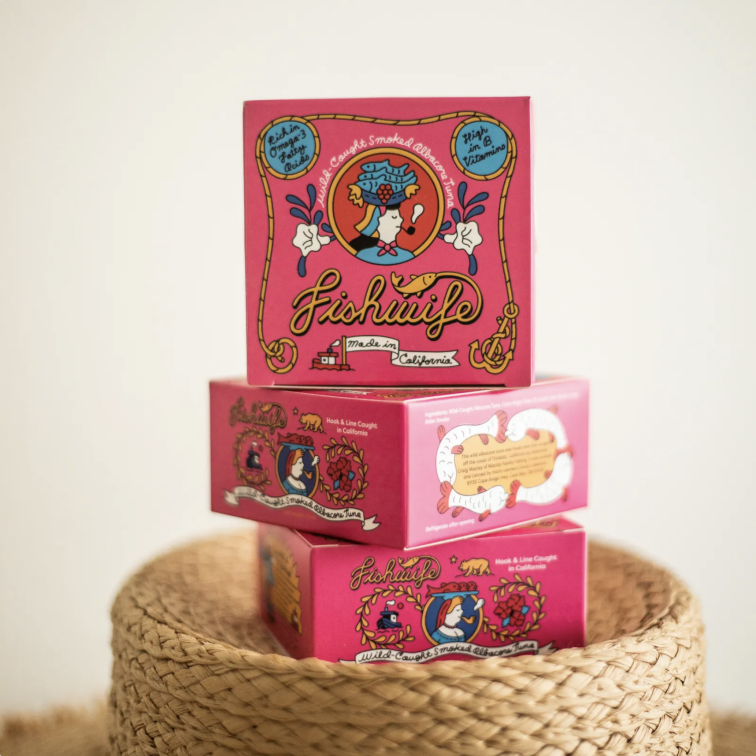
Sometimes the most unhealthy and ecologically destructive products also have the most effective marketing campaigns. All the while, sustainable producers generally have to tell their story through campaigns with small budgets. Perhaps in ten years, roles will have been reversed. Regardless of this dynamic, Fishwife is doing their best to sell sustainable fish in a pretty hip way.
Founders Becca Milstein and Caroline Goldfarb know that the term ‘fishwives’ dates back to the 16th century, and know that over the last few centuries, it has also acquired a negative connotation; typically it conjures an image of women who are brash and foul mouthed. But these co-founders can relate. Their unique branding, inspired by the Portuguese tradition of adding colorful packaging to canned fish, helps make their sustainable fish stand out.
Fishwife
Beautiful tinned seafood
To make sustainable fishing a success, products that stand out and are tasty tend to be more successful. Kvarøy Arctic came up with a delicious hot dog made from sustainable salmon. The Norwegian farm is a family business that is run by third generation fisherman, and the salmon farm is located in the icy arctic waters about 550 kilometers above Trondheim. Here, salmon is given space in the ocean and fed a diet that is free of antibiotics and chemical additives.
Through their consistent sustainable approach, the family-owned company has managed to double omega-3 fatty acids in their farmed salmon, compared to regular farming.
Kvarøy arctic
A hot dog made from sustainable salmon
© KVARØY ARCTIC
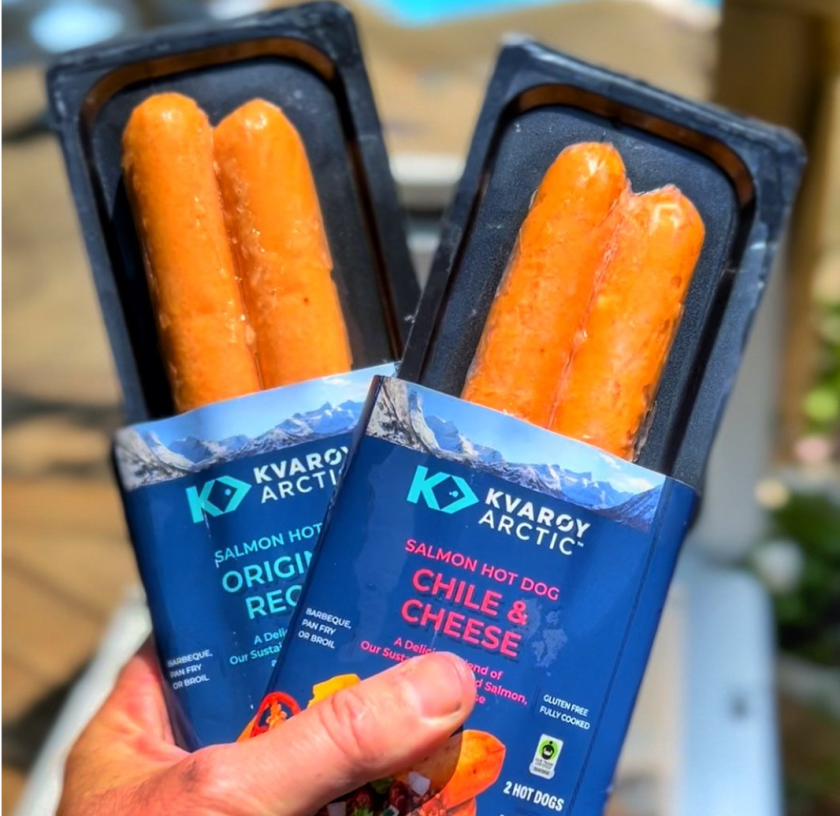
Who says snacking has to be unhealthy, or at the expense of animals or the planet? More and more start-ups are trying to make the healthy choice the tastiest choice. This includes Blue Dot Kitchen, a company that makes an irresistibly delicious snack from seaweed. Blue Dot’s offerings are available in three different flavors: Korean barbecue, umami and salt & pepper.
Located in the cold clear waters of the Salish Sea, Blue Dot sea farm grows kelp on a suspension aquaculture farm that enhances water quality and provides a cost-effective and ecologically sustainable food source. Kelp requires zero input to grow; it is regeneratively farmed with salt water and sunshine, without fertilizers or pesticides.
Blue Dot Kitchen
Restoring ocean health with every bite
© Blue dot kitchen
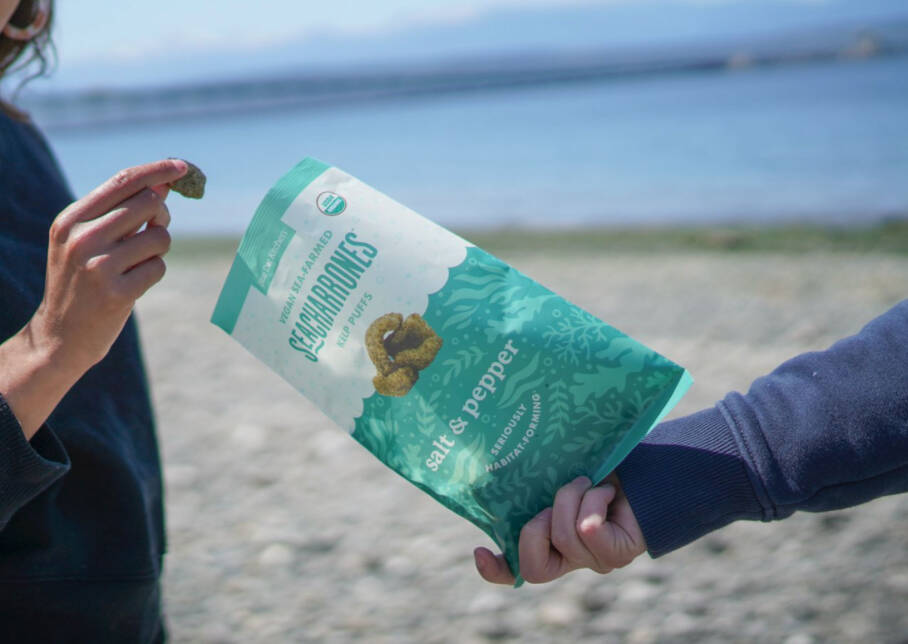
These entrepreneurs understand that 'healthy' and 'sustainable' can't go without 'tasty'

Hans Steenbergen Xiao Er Kong
Global warming, overfishing and pollution are threatening our oceans. All while we should be cautious with the blue part of our planet. After all, it is one of the most important sources of food for our growing world population. Fortunately, more and more entrepreneurs are focusing on Blue Food. These are mostly young companies and driven entrepreneurs who understand that the health of our planet is just as important as economic profit, while also keeping in mind that a product can only be successful if the flavor is also tasty. Five notable examples include:
Five sustainable seafood initiatives
4 min















